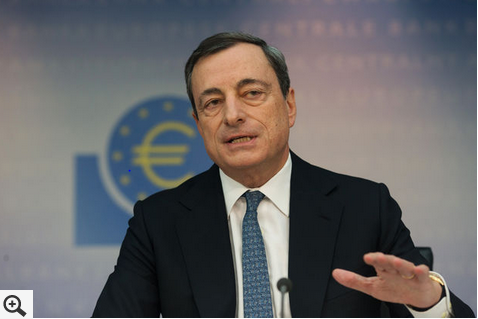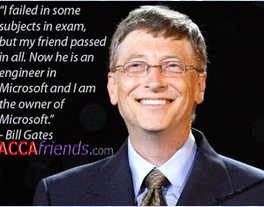Russia agreed to international monitors arriving in Ukraine amid more turmoil in the region and as Western nations expressed growing concern over the Kremlin massing troops on the border with its neighbor.
While talks about the monitors with Russia were “difficult,” their presence may help avoid escalation of the conflict, German Foreign Minister
Frank-Walter Steinmeier told reporters in Kiev yesterday. Pro-Kremlin forces seized a military airport in Crimea and ousted Ukrainian leader
Viktor Yanukovych’s supporters protested in the country’s east.
The six-month monitoring mission is meant to cool tensions in the worst standoff between Russia and the West since the end of the Cold War. As Russian President
Vladimir Putin completed the annexation of Crimea, the two sides exchanged sanctions, raising concern about escalation. U.S. President
Barack Obama will meet allies during a European visit starting tomorrow.
“It is important that we in the free world not accept the occupation of Crimea, that we continue to resist, and that we do not return to business as usual with the Putin regime until such time as the occupation of Crimea ends,” Canadian Prime Minister
Stephen Harper said in Kiev yesterday at a news conference with Ukrainian Premier
Arseniy Yatsenyuk. “The consequences of these actions will be felt far beyond the borders of Ukraine.”
East Ukraine
With Putin’s annexation of Crimea completed, attention shifted to whether Russia would seek to claim other parts of Ukraine. White House National Security Adviser
Susan Rice said the U.S. was watching events on Russia’s frontier with Ukraine.
“The Russians have stated that they are intending military exercises,” Rice said at a March 21 briefing in Washington. “Obviously, given their past practice and the gap between what they have said and what they have done, we are watching it with skepticism.”
U.S. intelligence and military officials said there are now Russian troops on virtually all of the country’s border with Ukraine. Some units have moved within 31 miles of the border, said the officials, who requested anonymity to discuss classified intelligence reports.
Russian troops in some sectors, including near corridors from Russia to major Ukrainian cities, have been reinforced with armor, attack airplanes and helicopters, the officials said. There are also signs that the troops are receiving substantial logistical support, which could signal preparations for sustained operations, they said.
‘Far-Reaching Consequences’
The number of Russian troops along the border is about double what it was when the defense ministry in Moscow announced that its armed forces would hold exercises near eastern Ukraine, according to the officials. Even so, the officials said it’s hard to assess whether the Russians are preparing for an invasion or are trying to intimidate the pro-Western government in Kiev.
If Russian troops enter east Ukraine, it “would trigger far-reaching consequences in a broad range of economic areas,” U.K. Prime Minister
David Cameron told reporters March 21 after a summit in Brussels. “That must include the key areas like finance, like the military, like energy.”
About 40 kilometers (25 miles) from the Russian border, Yanukovych supporters rallied in the city of Donetsk yesterday, urging the Kremlin-backed leader’s return and a referendum to give Ukraine’s regions wider power. More than 2,000 people gathered in the city of more than 1 million, according to the Interfax-Ukraine news service.
Federal Ukraine
“I’m for an integrated Ukraine, but with a federal form of governance,” said Mykola, 58, a retired mining engineer at the rally who declined to give his last name for fear of reprisal. “The east and west of Ukraine for sure should have a common defense, common science, common culture, but most of the region’s revenues should be kept within this region.”
The comments echo those from Russia, which has urged its neighbor to adopt a federal constitution that guarantees political and military neutrality, grants powers to Ukrainian regions, and makes Russian a second official language. There’s no indication that would be acceptable to the Ukrainian government or to its Western supporters.
Russia welcomes the decision by the Organization for Security and Cooperation in Europe to send monitors, the Foreign Ministry in Moscow said in a website statement yesterday. Their mandate doesn’t extend to Crimea, which reflects “the new political and legal realities.”
Airport Seized
In the Black Sea peninsula, pro-Russia forces yesterday seized Belbek airport and arrested its Ukrainian commander, Yuliy Mamchur, he said by text message. There were no injuries, he said. About 100 Ukrainian troops were forced from their Novofyodorovka base in Crimea earlier, Vladyslav Seleznyov, a spokesman for Ukraine’s Defense Ministry, said by phone.
Belbek is the main airport for the city of Sevastopol, where Russia’s Black Sea fleet is based. The main civilian airport in Crimea is in Simferopol.
Fewer than 2,000 of the more than 18,000 Ukrainian troops in Crimea have said they want to leave, Russian state-run news service RIA Novosti reported, citing the Russian Defense Ministry. Russian flags have been raised over 54 of 67 Ukrainian ships and Defense Minister
Sergei Shoigu ordered his forces to allow the orderly exit of Ukrainian troops, RIA said.
Ukraine’s government, which on March 21 signed the political chapters of an association accord with the EU, discussed military cooperation with European partners, Yatsenyuk said in Kiev yesterday.
Leaders’ Meeting
Leaders of the U.S., the EU, China, Japan and other nations meet in The Hague starting tomorrow, and Obama plans to use the gathering to mobilize opposition to Russia’s incursion into Crimea.
While ruling out military action, Obama has joined European leaders in warning of further consequences if Russia fails to yield. The U.S. is focusing on diplomatic and economic tools to defuse the crisis, Rice told reporters.
The Obama administration continues debating what military aid to send Ukraine in addition to ready-to-eat meals and other non-lethal assistance, one administration official said, speaking on condition of anonymity to discuss the policy deliberations.
The EU, moving more slowly than the U.S. on sanctions, on March 21 expanded to 51 individuals its list of Russians and Ukrainians punished with asset freezes and travel bans.
Sanctions List
The U.S. the previous day widened its list of people targeted to 27 Russian officials and four Ukrainians. In addition, Obama that day authorized potential future penalties on Russian industries, including financial services, energy, metals and mining, defense and engineering.
Russia’s benchmark
Micex Index of stocks fell 1 percent on March 21, the most among emerging markets, to 1,307.34 by the close, and the yield on government bonds due February 2027 jumped 12 basis points, the most in a week, to 9.42 percent.
Russia reserves the right to impose sanctions following the EU’s decision to expand its list, Russia’s Foreign Ministry said in a statement yesterday.
The ministry is proposing retaliatory steps, as “unanswered sanctions may whet appetites to impose new measures,” Deputy Foreign Minister
Grigory Karasin told lawmakers.











